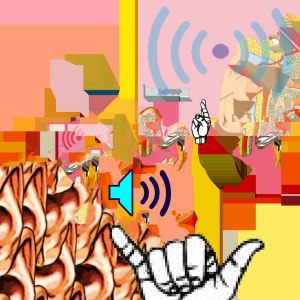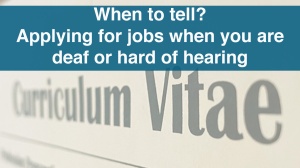
-Ana
Going on the job market was a fraught decision for me. As a postdoc considering tenure-track faculty positions, I relied on hearing aids and lip-reading for communication, but, due to my background, I was unaware not just of assistive technologies that could help with communication, but of the very existence of campus offices dedicated to providing accommodations. My struggles in grad school and as a postdoc had left me with severe doubts (enough to fill another blog post) about whether academia was a career path I could follow. Despite my misgivings, a supportive advisor encouraged me to try my hand at the job market, thus setting the stage for a second set of excruciating decisions to be made: What should I tell the search committees about my hearing loss? When should I reveal it? How much should I tell?
If you haven’t already, I recommend you read Ryan Seslow’s wonderful post about the numerous concerns a deaf/hard-of-hearing (HoH) applicant might have concerning equal consideration from search committees. Regardless of regulations to prevent discrimination (and such rules likely do not exist in every country), every step of the hiring process has potential for bias against candidates with hearing loss. Also sobering is Michele’s recent post about the leaky pipeline for deaf and hard-of-hearing academics. Could bias against deaf/HoH candidates during the hiring process contribute to the “leaks”? The topic of disclosing (or not) disabilities to employers has even been recently featured in the New York Times, and I have just now picked up a fascinating book of collected essays about disclosing disability in higher education. With this backdrop, it is clear that deciding what to tell and when is not a decision to be taken lightly.
With these concerns in mind, in summer 2019 The Mind Hears solicited responses to a very 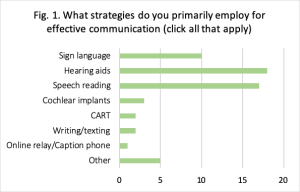 short survey about when folks chose to reveal their deafness. The 25 survey responders spanned people in a range of positions and career stages, with at least two actively on the
short survey about when folks chose to reveal their deafness. The 25 survey responders spanned people in a range of positions and career stages, with at least two actively on the
market, and the rest ranging from postdocs to lecturers, faculty on and off tenure tracks, researchers, and at least one retired professor. The survey showed that preferred communication methods varied widely, with a great majority of respondents reporting that they rely primarily on speech reading and hearing aids, but a little over 40% use sign language (Fig. 1).
While the number of responses prevents an comprehensive treatise on how deaf/HoH academics approach the job search process, this survey does provide a series of snapshots of choices that have been made—and why they have been made. Many personal factors can play a role in these decisions—such as upbringing, prior positive or negative experiences in disclosing hearing loss, primary mode of communication, career stage, and the type of institution applying to. Cultural shifts in social climate may also influence whether a strategy may be more appealing today than it was 20 years ago. Regardless of the limitations of the survey, as you sift through these snapshots of experiences, you may find something that resonates with your history or that gives you an idea of how to move forward in your own job search.
The first question we asked was: At what point in your job application for a professional  position have you chosen to reveal your deafness? Among our respondents, the most common choice was “upon being invited to the interview,” followed by two polar opposites: “never” or “in the application materials”(Fig. 2). Various minor choices involved situational circumstances, the fact that application materials strongly suggested (but did not overtly reveal) deafness, or revealing only once the job offer was accepted.
position have you chosen to reveal your deafness? Among our respondents, the most common choice was “upon being invited to the interview,” followed by two polar opposites: “never” or “in the application materials”(Fig. 2). Various minor choices involved situational circumstances, the fact that application materials strongly suggested (but did not overtly reveal) deafness, or revealing only once the job offer was accepted.
What prompted people to make their choice? Those who never revealed their deafness or revealed it late in the process (during the interview or upon acceptance) expressed strong concerns about bias. Here is a sample of replies:
“ I have been rejected before the interview which I assume is because of my disclosure of being deaf.”
“Not wanting to make a fuss, not wanting to give them the opportunity to [discriminate], thinking that I could get by without them knowing anyway.”
“worried about discrimination and also feel[ing] that it doesn’t affect my ability to do job so it isn’t any of their business.”
For those who revealed their deafness upon being invited to interview, the overriding concern was that their application would be evaluated without prejudice, but that performance during the interview would not be misinterpreted:
“I want to be upfront about the reason why I may asking ‘what’ more often than the hearing person so it doesn’t reflect poorly on me. It’s not that I’m not listening, it’s just that I physically couldn’t hear you.”
“You need to make sure you are able to hear in the interview, and prepare the interviewers for any gaps in understanding that occur as a result of your not hearing them well.”
“I want my resume to be read without any bias. If my resume gets selected for interview, it is based on my merits. So, at that time I let the interviewer know about my deafness to get necessary accommodations for a smooth conversation. However, I understand that even at that stage the bias can creep in.”
“I like to be upfront and let the interviewer know that I will be using VRS [Video Relay Service]—I want a workplace that will be open to my being Deaf so like to bring it up as early as possible in a relatively nonchalant way.”
“I didn’t want my disability to determine whether or not I would be invited to campus. I didn’t want interviewers to think I was strange if I tried to pass as a hearing person, so I told the committee that invited me for the interview.”
Those who chose to reveal their deafness early on, in the application materials, felt that valuable information about them would be lost without a reveal, or knew practices in their field would require challenging communication situations arising early in the process:
“I had one significant outreach in the Deaf community and wanted institutions to know that would likely be part of my service as a professor.”
“The job was for a post in a university as a deaf studies and sign language lecturer, so it was advantageous to tell them at that time.”
“Most jobs in my field do first round interviews via Skype or Zoom and I cannot hear the committee members.”
We then asked: What accommodations have you requested during job interviews, and how have these requests been received? In my case, this question brought back painful memories. Because the concept of asking for accommodation was so foreign to me—I had an ingrained belief that my “problem” was mine alone to solve—the only accommodation I requested was that my host repeat all audience questions for me. I still cringe at recalling the most challenging part of my interview days—lunch with the graduate students, generally a large group, with many too shy to speak loudly. I had the terrified feeling that if I as much as glanced down at my pizza slice I was going to miss an incredibly important question from a person across the room whom I could not hear nor speech read. Fortunately, some respondents were much more savvy than I was, though, as you may expect, the answers were as diverse as deaf/HoH individuals can be.
Some folks opted not to request accommodations or to bring their own communication tools or approaches:
“None; I don’t want to doom my chances from the start.”
“None, I bring my own FM system and do my own research about the panel beforehand to see if there may be any additional concerns for speech reading.”
“I reveal my HoH state right up front as soon as we’re introduced, explain that I might need to ask them to repeat themselves and [if] necessary, ask people to move closer.”
Several job seekers mentioned orchestrating seating arrangements in order to facilitate communication:
“I did not request formal accommodations but did ask for clarification within conversations and chose my seats carefully at meals [so that I could follow conversation].”
“Rearranging a room for my job talk in order to make the seating shallower and to make it more easy for me to walk up to folks during the Q&A.”
“No specific accommodations. I’ve told people I needed to see their face to lipread, and sometime I’ve asked to sit in a different place to help with lipreading. I see this as casually saying I have a hearing impairment, if needed, rather than formally declaring it as a disability.”
Some job seekers explicitly requested accommodations for the interviews with mixed responses:
“Used CART or written questions for onsite interviews; Caption phone for phone interviews. 60% of the time, it was not an issue. At other times, people did not understand the accommodation process and tried to speak instead of writing questions, or say like “I don’t know why, but he is using a special phone”, even after having informed about it in advance. At that time, I had to repeat the need for accommodation.”
“I have used interpreters in interviews and this practice generated all kinds of rude and/or illegal inquiries. I have had an interpreter blocked from parts of the all-day academic dog-and-pony-show interview on the grounds it was the “confidential” part (only to find the other party sitting with his back to the bright window, rocking post-stroke half-face paralysis and a Western movie sheriff moustache).”
“Sign language interpreters, request was very positively received.”
Ultimately, our worry is that conscious or unconscious bias will lead search committees to assume that we are not suitable for the positions. But how to limit the effect of bias when we communicate our needs? We asked respondents how they reassured committees of their job suitability. Some suggested highlighting the unique strengths of being deaf/HoH:
“I make sure to show the positive aspects as they would relate to the job, ‘I have these sets of skills and they would assist me in this position in the following way.’ These are not just skills that ‘make up for’ my hearing, but skills that I have [that] add an advantage over hearing individuals or individuals that don’t speech read or know sign language. Being multilingual is typically a plus on a search.”
“My PhD advisor and I talked about how he would describe my deafness within his letter of recommendation. I had some concerns that he would take a ‘pitying’ tone and in our conversation I was able to suggest to him some ways to frame my hearing loss as one of my characteristics rather than as a challenge to be overcome. He seemed to understand so I trusted that his letter would assuage any fears of the committee. My PhD advisor had also been impressed with the significant effort that I had put into disability advocacy during my PhD. I believe that he framed this as my passion for serving the community.”
A few job seekers were confident that the search committee would judge their strong qualification fairly:
“I trust that my CV speaks for itself, as well as outlining my capabilities/communication methods in my covering letter.”
“My qualifications show suitability in and of itself, confidence is key and knowing exactly what accommodations I need.”
Sadly, also common among survey respondents were concerns that the whole process is unfairly stacked against deaf/HoH applicants, or that the only way to be perceived as competent is to disclose as little as possible:
“My work history speaks for itself. I’ve been teaching for 13 years […]. But since I rarely make it to interview stage, I don’t even get to reassure the committee members of my suitability for the job.”
“After several interviews where both having an interpreter (‘do we have to pay a second person to have you work here??’) and not having an interpreter (‘but her answer to my question was not what I asked. She should have had an interpreter if she could not hear me’) did not work, I made a deal with the devil to get a [cochlear implant] so that I could fake it through the interview as a HoH person, just showing them that I could fit in. I did not draw a great deal of attention to my deafness. I know people on the search committee and the hiring Dean knew that I was deaf and used interpretation in other settings. However, I wasn’t going to bring it up if they didn’t. Surprisingly enough, that actually did work. I kept my head down and did minimal committee service and very non-interactive classroom style teaching until I was tenured before I began [to ask] for interpreting. The more interpreting I have had access to since then, the more effective my overall professional performance has been. It is a shame that businesses only see the cost of it, and not the performance improvement.”
Because the role of search committees is essentially to eliminate applicants, the job application process is a loaded situation for all, deaf/HoH or not. And it tends to be pretty easy for search committees to come up with reasons not to hire somebody, regardless of any anti-bias regulations put in place. As a result, it is also nearly impossible to prove that a hiring committee has discriminated based on an applicant being deaf/HoH. However, the fact that communication is such a critical and continuous component of academic jobs greatly increases the possibility that our deafness will be erroneously perceived to compromise our likelihood of academic success — before we even get a chance to prove prejudices wrong. There is no easy fix for this; the only one I can think of is to normalize the presence of deaf/HoH academics to the extent that any request for accommodation is seen as routine. Those of us who already hold positions have a role to play here, perhaps in being more forward about requesting accommodations, and in making sure that our deafness is recognized by colleagues and administrators. We should also make sure that diversity initiatives in academia explicitly incorporate disability as an important facet of diversity.
We are very grateful to all people who responded to the survey and were willing to share their experiences with us. Thank you for taking the time to share your stories. Such sharing can only help all of us, and we hope others will feel inspired to keep on paying it forward in the comments below.


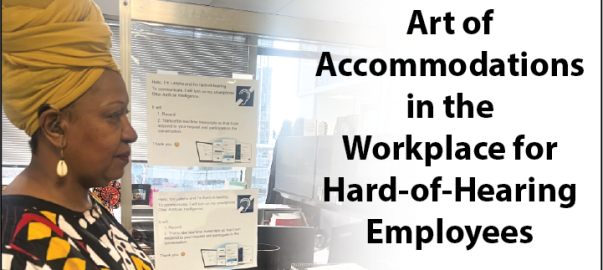
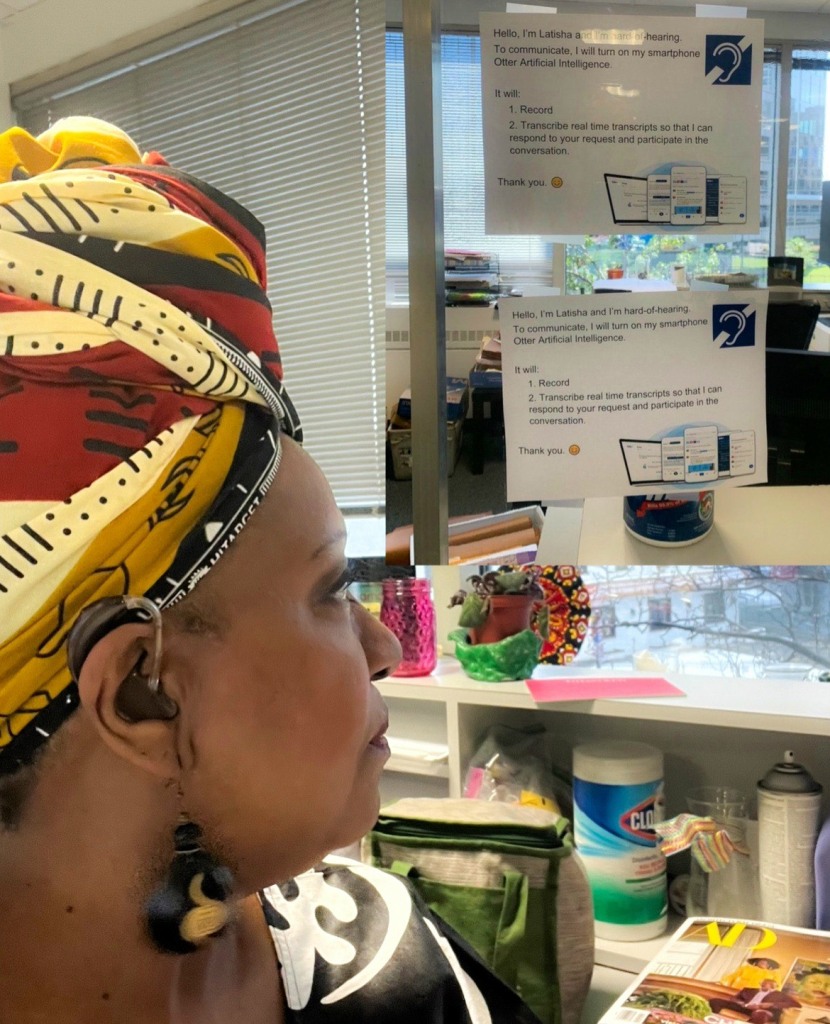
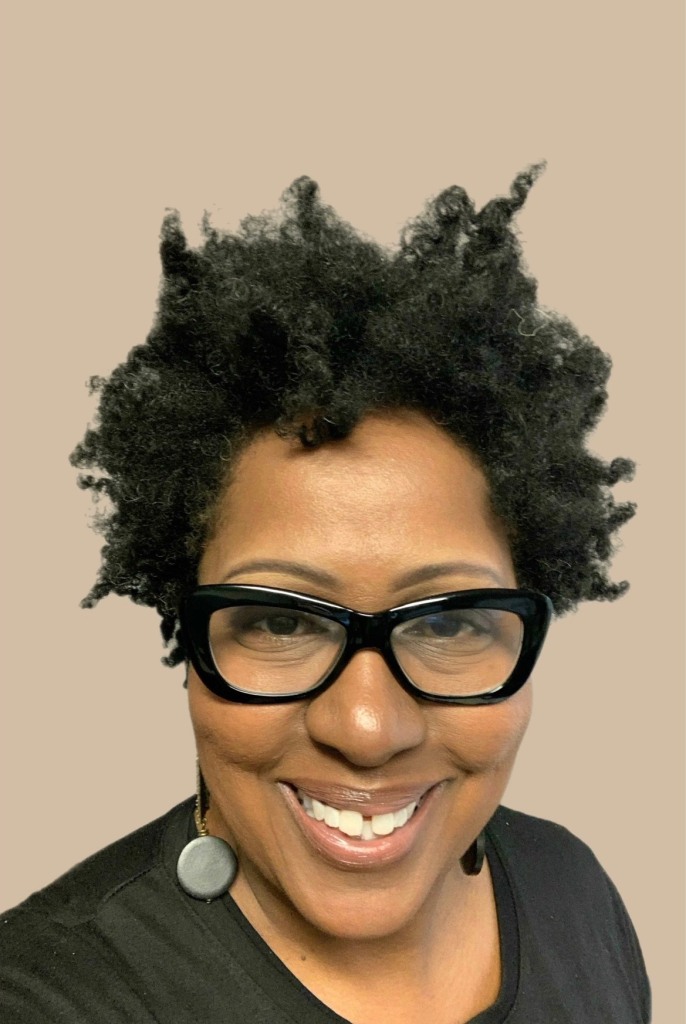



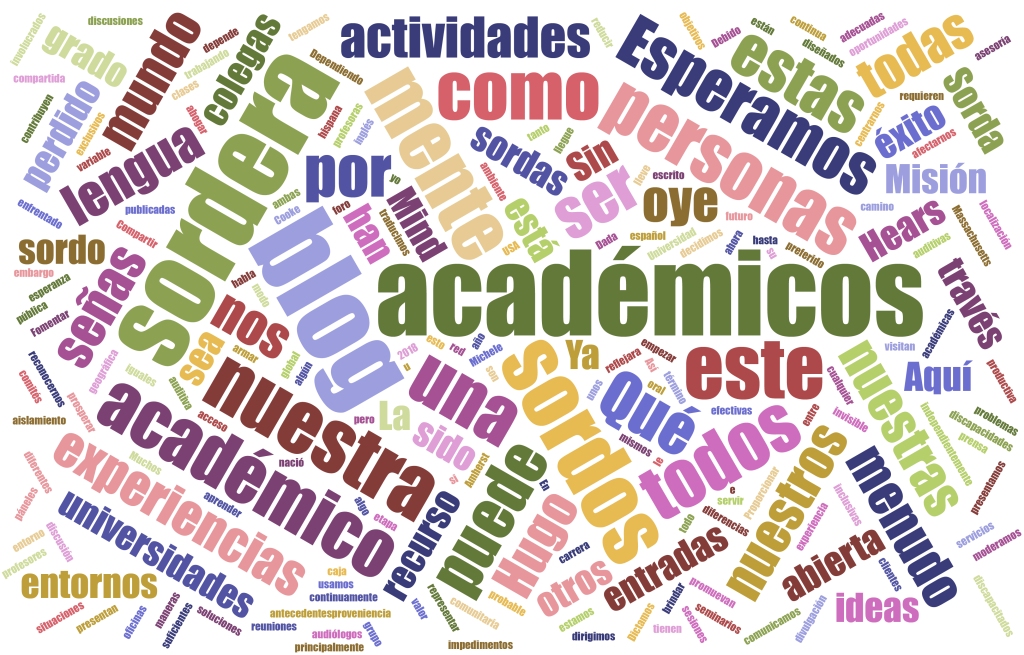
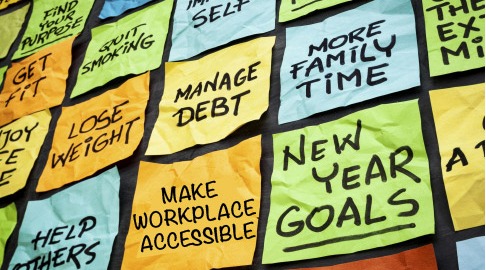

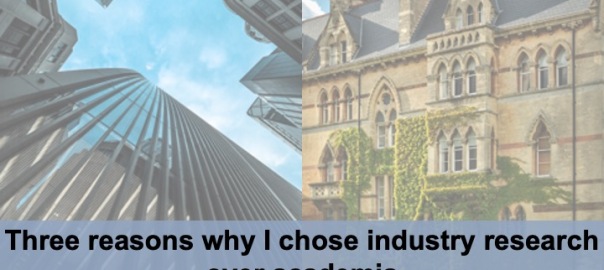

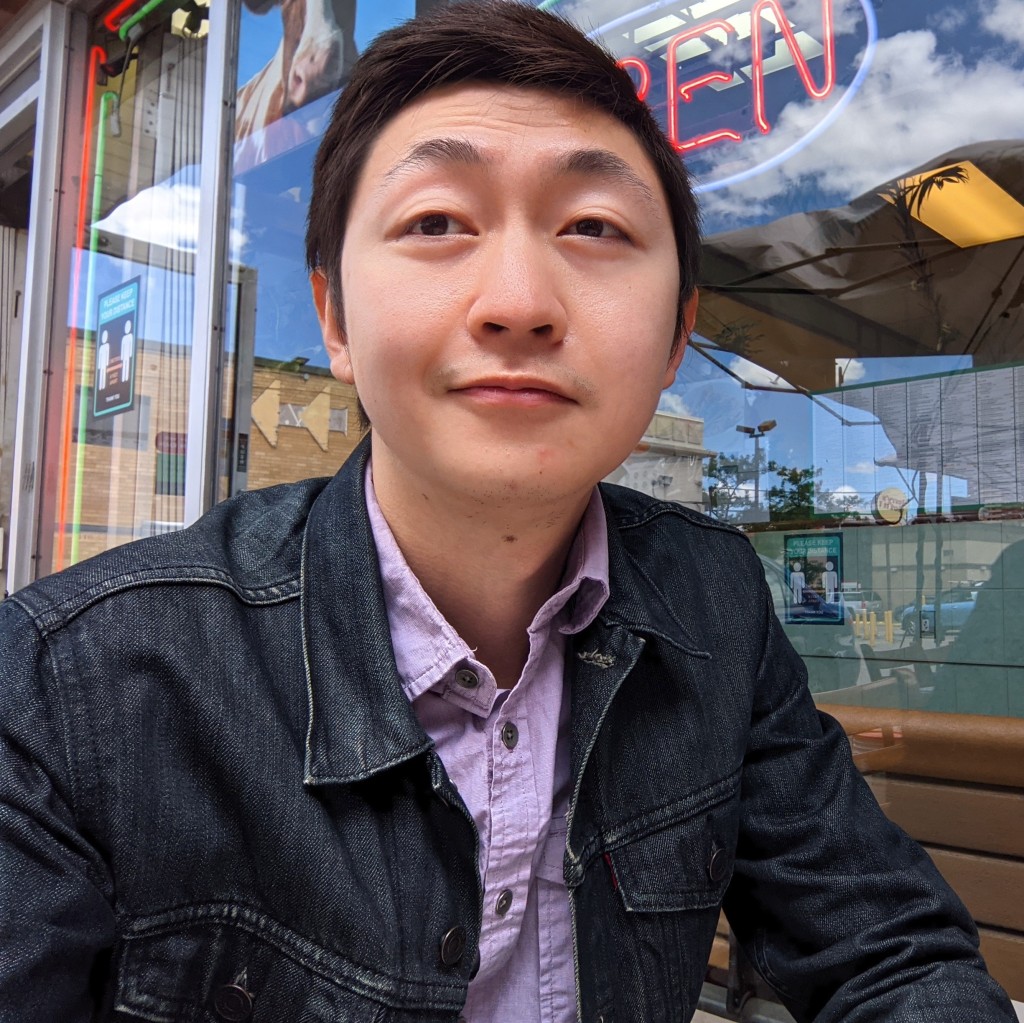
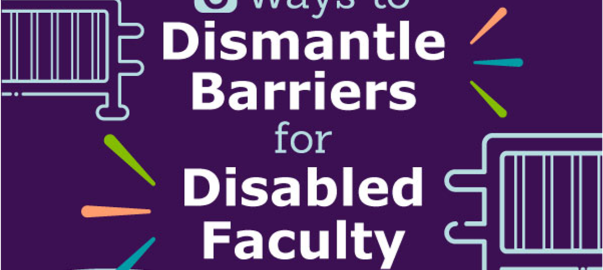




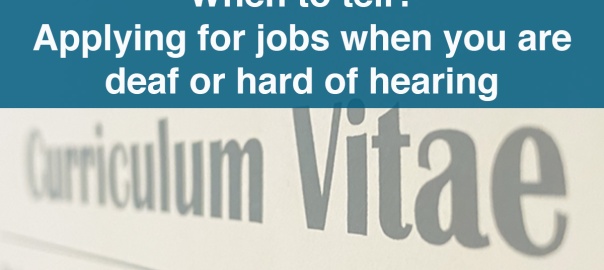

 short survey about when folks chose to reveal their deafness. The 25 survey responders spanned people in a range of positions and career stages, with at least two actively on the
short survey about when folks chose to reveal their deafness. The 25 survey responders spanned people in a range of positions and career stages, with at least two actively on the position have you chosen to reveal your deafness? Among our respondents, the most common choice was “upon being invited to the interview,” followed by two polar opposites: “never” or “in the application materials”(Fig. 2). Various minor choices involved situational circumstances, the fact that application materials strongly suggested (but did not overtly reveal) deafness, or revealing only once the job offer was accepted.
position have you chosen to reveal your deafness? Among our respondents, the most common choice was “upon being invited to the interview,” followed by two polar opposites: “never” or “in the application materials”(Fig. 2). Various minor choices involved situational circumstances, the fact that application materials strongly suggested (but did not overtly reveal) deafness, or revealing only once the job offer was accepted.
